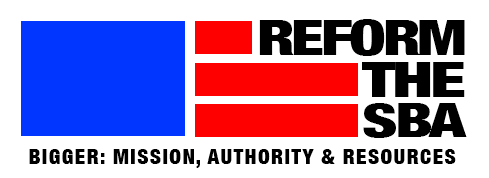“…as the PPP experience demonstrates, a larger share of capital is going to white entrepreneurs and small-business owners, while many of their counterparts of color lack the capital they need to survive and grow.
This is not a problem just for those small businesses or the communities they serve; it has a negative impact on our entire regional economy. It is in our collective interest to help Black and Latinx entrepreneurs and small-business owners to succeed.”
Crain’s Chicago Business
April 16, 2021
Pandemic-inspired small-business loans expose inequities that must be fixed
This is not a problem just for those small businesses or the communities they serve; it has a negative impact on our entire regional economy.
By Helene Gayle
When the pandemic struck just over a year ago and stopped our economy in its tracks, Congress responded with the largest small-business loan program in U.S. history.
When it concludes this May, the Paycheck Protection Program will have provided $784 billion in forgivable loans to nearly 4 million small businesses. Yet a shockingly small percentage of those loans have gone to Black- and Latinx-owned small businesses.
According to the U.S. Small Business Administration, which administers the PPP, of the 996,000 loans that included information on the borrower’s race, 71 percent of the money went to white-owned businesses. Only 12 percent of Black- and Latinx-owned small businesses received the full assistance they requested. Ninety percent of minority and women-owned businesses did not get any loans under PPP.
The state of Illinois responded to the pandemic with its own emergency program for small businesses, Business Interruption Grants, or BIG. A full 90 percent of the program’s recipients listed the owner’s race. Data shows that white business owners received 55 percent of the state’s grant funds. Black business owners received just 6 percent.
Why the disparity? One might think that, especially under a government program, such assistance would be far more equitable. Certainly, Black- and Latinx-owned businesses didn’t need the help any less. If anything, many of those businesses had greater needs as they are located in communities where the economic impact of COVID has been felt the most.
However, in designing the PPP, Congress decided to make the federal loans available through private-sector lenders such as banks. Many minority-owned businesses lack established relationships with banks. Therefore, banks ended up providing loans primarily to their larger commercial clients.
There was no risk to the banks. The funds were supplied by the federal government and were fully forgivable. Yet, as with many other aspects of American society, COVID and its economic impact revealed long-standing inequities. One of those is the difficulty that many Black- and Latinx-owned businesses face in accessing capital.
A recent Federal Reserve survey cited in the New York Times found that 80 percent of Black or Asian American small-business owners said their companies were in weak financial shape, compared to 54 percent of white business owners. Owners from all other demographics listed their main challenge as low customer demand. Black owners cited a different barrier: access to credit.
At the Chicago Community Trust, we focus on growing the household wealth of Black and Latinx individuals and families as a part of our goal of closing the racial and ethnic wealth gap.
One of the main strategies for accomplishing that goal is building and supporting entrepreneurs of color and minority-owned small businesses. Their success requires, among other things, adequate access to capital. But as the PPP experience demonstrates, a larger share of capital is going to white entrepreneurs and small-business owners, while many of their counterparts of color lack the capital they need to survive and grow.
This is not a problem just for those small businesses or the communities they serve; it has a negative impact on our entire regional economy. It is in our collective interest to help Black and Latinx entrepreneurs and small-business owners to succeed.
That requires an acknowledgment that historic lending practices must change and that banks, regulators and legislators must better understand and serve the needs of Black- and Latinx-owned businesses.
It shouldn’t take an emergency like COVID to open our eyes to the inequities built into our economic system. Now that the picture is clear, however, we can take the actions required to bring more fairness to that system—and more growth and prosperity to our region’s economy as a whole.
Helene Gayle is a member of the Board of the Federal Reserve Bank of Chicago and president and CEO of the Chicago Community Trust, which is a sponsor of Crain’s Equity.

